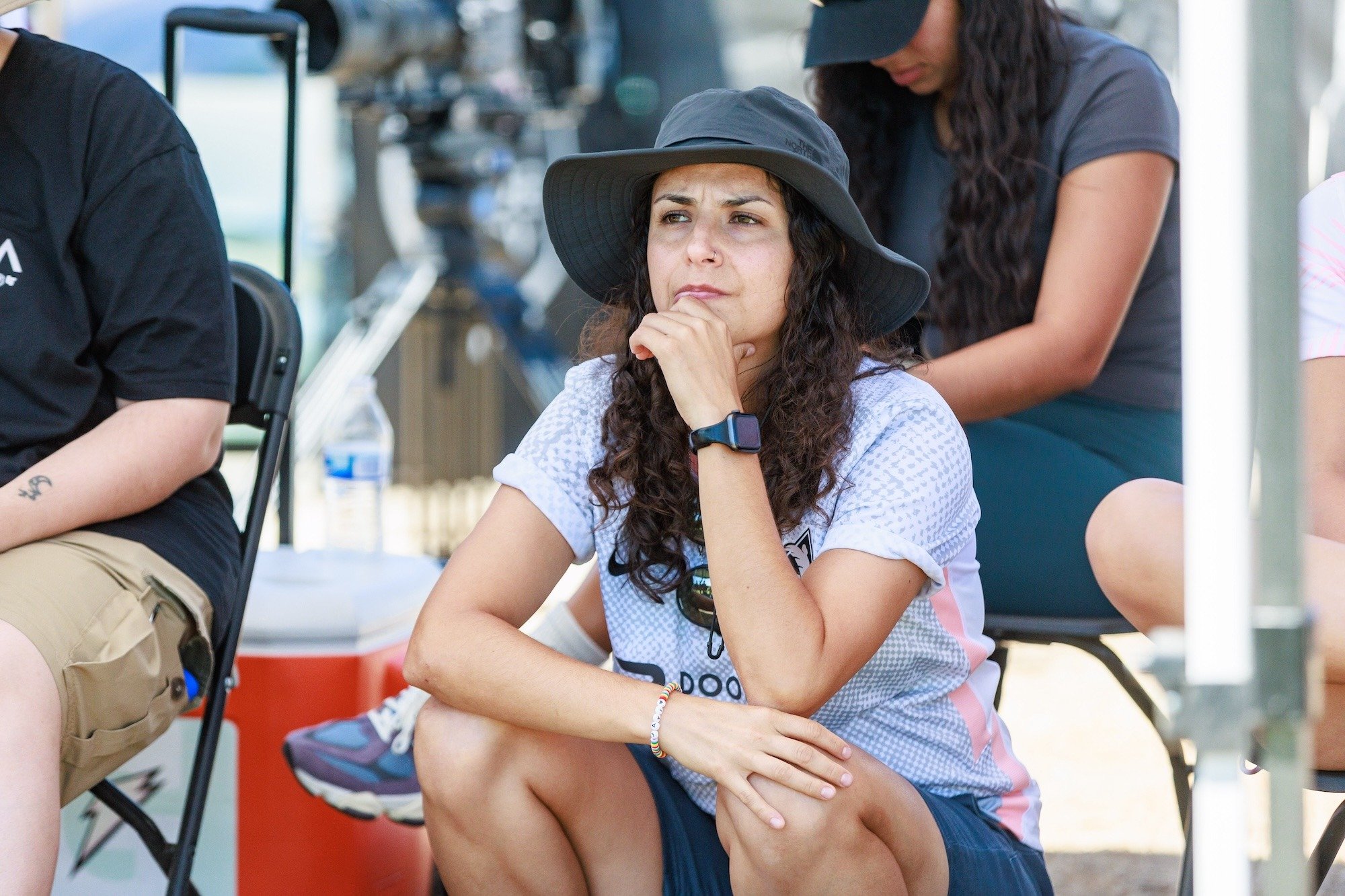

Javiera Guajardo is a participant in the ACFC Coaching Network. Supported by Gatorade through Angel City's 10% Sponsorship Model—where 10% of all sponsorship dollars are reallocated back into the community—the Coaching Network holds workshops and sponsors coaching licensure courses for female and gender-expansive coaches.
An immigrant from Chile—and former member of the Chilean national team—Guajardo started coaching two years ago and has since earned her USSF Grassroots license through the ACFC Coaching Network. We talked to Guajardo about how she got into coaching, what she’s learned, and where she wants to go.
AngelCity.com: How did you get into coaching, and what were your first experiences as a coach like?
Javiera Guajardo: Well, first of all, I want to say I wasn't sure [about coaching] at first because I still love playing. So for me it was like, do I move on from that? That was a hard decision.
But I started last March. I had kind of an introduction to coaching a year before that, coaching a player one-on-one whose mom I played with. I had no idea how to start. My girlfriend, Francisca, had to help me—she studied physical education in university, so she helped me out.
Then a year later, I started with both Football for Her and Tudela. They’re both really different, because Football for Her is more social and Tudela is more about developing players, so it's more discipline. I love being involved in both of them because I can use different skills.
Football for Her is amazing. The girls just want to play. They listen to you. They are excited all the time. And maybe it's not like, a disciplined club, but it's amazing. The emotions are really there, the energy, you can feel it.
And then at Tudela I’ve learned about how, if you want to move from A to B, you need to make a plan. If you want them to learn how to defend, you study that with them and then move on to the next thing. So they’re different, but I love both of them.
ACFC: What were the biggest challenges for you when you first started coaching?
JG: I'm from Chile. So in South America, most players, we’re just born with these skills and you just play. I played in the street all the time growing up. I didn’t play on a team until I was 15. So when you're trying to teach the girls, it’s different. All the development from 4 or 5 years old to, I don't know, teenagers, I didn't know how to teach them.
With shooting, for example, I know you use your laces, your instep, but how do you teach that? Now I understand, like, open your hips if you want to put the ball across, or whatever. But last year I was like, blind. So learning how to teach step by step so they can understand is the big challenge for me—and don’t expect them to get it right away, because it’s a process.
ACFC: What’s your favorite thing about coaching?
JG: When you are genuinely committed to the players’ growth and you start watching them improve step by step— [I see that] and I'm like, “yes!”
When you say something to one of them and they just do it, that for me is amazing. When you're a teacher and you teach and they learn, and you can see they’ve learned, not just because they say it, but because they can do it—it's amazing. You feel so proud of them.
ACFC: Would you say you’ve learned more from coaching courses or from experience?
JG: I think it’s 100% a mix of both, because, first of all, I feel if you always stay humble, you will learn from anybody. So I’ve learned from friends and from other coaches.
And then in the licensing course I was like, “now I understand why they say this, why they do this.” You need both. You cannot just go with your experience or just with the courses. You need space to put what you learn on the field—to make decisions for yourself, not just because another coach is doing it. You need to try things and see what happens.
ACFC: Where would you like to be as a coach in five or 10 years?
JG: I'm not sure if I want to work at a college or high school, but for sure I want to work at a club and keep moving up, because I love being competitive. When I'm watching ACFC games, I'm not just watching, I'm analyzing everything. I really enjoy that part.
So I think probably being in a more competitive environment, maybe starting with older players, and eventually at a semi-pro or a pro team—why not?
And then maybe—I’m 35 now—by the time I’m 50, I would like to be my national team coach. I know the players, I’m from the country, with experience outside it. And over there, we’ve always had male coaches. We need more women in charge. It makes a big difference. So I think that’s my big dream.




